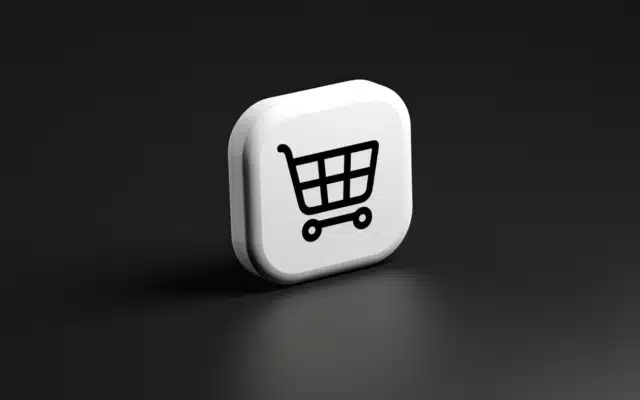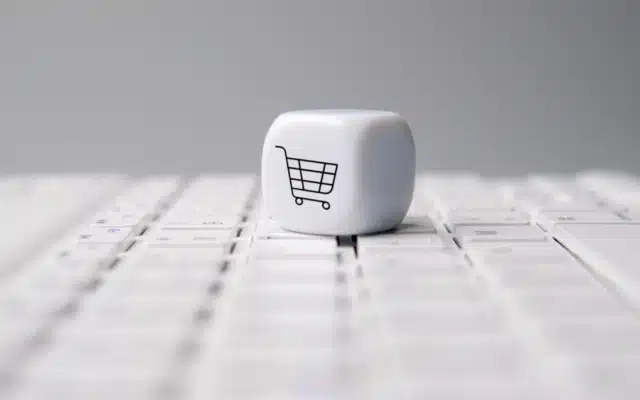NFT Marketplace Development is a trend that’s sweeping the digital industry, as Non-Fungible Tokens (NFTs) are becoming more popular in digital collecting.
Let’s discuss NFT marketplace development in more detail.
What Are NFTs?
Non-fungible tokens (NFTs) are digital assets, otherwise known as crypto-collectibles, that are unique and indivisible. These tokens are stored in decentralized ledgers such as the Ethereum blockchain, allowing users to prove ownership and authenticity of their digital items. NFT application development extends beyond currency or traditional financial transactions. This is because NFTs can be used for anything from artwork to music recordings or virtual real estate. The distinctiveness of each token sets it apart from similar tokens and provides owners with a way to distinguish it from other assets.

Unlike traditional currencies such as bitcoin or ether, NFTs cannot be divided into multiple units and, therefore, cannot be exchanged on a one-to-one basis. They are also not interchangeable due to the specific extensions that allow them to carry specific data about that particular token. These can include an artist’s signature, images, audio clips, 3D models, or even scripts for custom applications. This immutability assures creators that their works will remain unaltered and their value is secured through the blockchain technology supporting them.
NFTs are able to create authentic digital scarcity — something not possible with traditional currencies. In the past, digital items were either pirated by being copied endlessly at zero cost or kept forever in servers without proof of ownership, which had little value, if any. With NFTs, however, every asset is unique in its own right. It has inherent protection against counterfeiting due to its cryptographic signature on the blockchain ledger — creating something akin to real-world asset ownership within a virtual environment.
Why Build Your Own NFT Marketplace
One of the most significant advantages of building an NFT marketplace is its ability to provide a secure and consistent platform for users to monetize their digital assets. For example, sellers can offer their artwork or collectible digital items in exchange for payment. At the same time, buyers can purchase rare and unique digital items that would otherwise be difficult to find anywhere else. Additionally, due to the blockchain-based nature of NFTs, users are provided with a secure and immutable ledger that records all transactions on the platform, which gives them peace of mind regarding any potential fraud or theft.
Given the decentralized nature of NFTs, users have much greater control over their ownership rights and how they choose to trade or resell their digital assets. With traditional methods such as selling artwork on auction sites like eBay, users have no control over when and how their items are sold since it’s up to the auction site itself to determine the pricing and choose when items will be listed for sale. On an NFT marketplace, however, sellers have complete control over when and how they list their items for sale and set their prices without worrying about third-party interference or manipulation.
Advantages of building an NFT marketplace:
- Security. With the current infrastructure and smart contract platforms, NFT marketplaces provide a secure way for users to trade digital assets without relying on a centralized entity. This dramatically reduces the chances of fraud and data theft, allowing users to be confident in their investments.
- Reduced cost. The decentralized nature of NFT marketplaces means that costs associated with making trades and payments are much lower than traditional platforms. This makes it easier for asset creators and buyers to make transactions without worrying about hefty transaction fees or needing to use costly intermediaries.
- Accessibility. An NFT marketplace allows global access to digital asset trading, regardless of geographic location or economic status. It eliminates the need for gatekeepers and opens access to previously tricky or impossible-to-reach markets.
- Transparency. All transactions made on an NFT marketplace are publicly visible and immutable, which provides greater transparency regarding the movement of digital assets. This helps promote trust throughout the network, as all activity is traceable, verifiable, and secure from tampering or manipulation.
- Efficient transactions. Transactions made through NFT marketplaces are quick and efficient compared to traditional methods like paper contracts and wire transfers which can take multiple days before completion. This allows for faster payment processing times and quicker interaction between buyers and sellers without waiting for lengthy verification processes.
- Ownership protection. When buying or selling digital assets on an open marketplace, it may be challenging to determine who owns a particular asset at any given time due to the lack of ownership transparency on some platforms. However, with an NFT marketplace, each user has the assurance that they are solely responsible for their own asset’s ownership, providing them with peace of mind when making transactions.
- Interoperability. Connecting various networks via various protocols, such as Ethereum’s ERC-721 standard, creates greater interoperability between platforms. This gives users more freedom when moving/selling/buying their assets across multiple networks.
Types of NFTs to List on a Marketplace
Types of Non-Fungible Tokens (NFTs) that can be listed on NFT platforms or marketplaces include digital collectibles, such as limited edition art, music, sports cards, and memorabilia; digital items like game skins, virtual avatars, and in-game assets; and other tokenized digital items like real estate, domain names, and cryptocurrency.
Art
Art is one of the most popular forms of NFTs listed on marketplaces. Art NFTs are essentially digital representations of physical artwork, such as paintings or sculptures, that can be sold online to any buyer worldwide. They allow people to own a piece of digital art without possessing it physically. Artists benefit from this form of NFT by creating multiple versions of the same artwork at much lower costs than physical copies would cost them. Art-based NFTs also enable artists to build relationships with their fans, who may purchase their work directly from them instead of involving third parties like galleries or auction houses.
Music
Music is another type of NFT that is becoming increasingly popular on marketplaces. Music-based NFTs allow musicians and labels to sell exclusive audio recordings or live performances as digital tokens. This allows them to create unique fan experiences by offering limited-edition releases or exclusive access to special events and concerts. It also helps musicians increase revenue by cutting out the middlemen who traditionally take large percentages from music sales.
Collectibles
Collectibles have also found success in the world of NFTs, with many platforms allowing users to purchase and own rare memorabilia items such as trading cards or vintage toys without worrying about authenticity issues since they will be represented as individual tokens rather than physical items.
Sports cards have become immensely popular among collectors due to their ability to be easily collected digitally via marketplaces while maintaining the same nostalgic appeal that physical cards had when trading started decades ago. These cards typically feature professional athletes and often come with special bonuses such as one-of-a-kind memorabilia items attached. It significantly enhances their collectibility factor while retaining their long-term value as traditional cards do.
VR Assets
Virtual worlds and virtual real estate are other types of NFTs gaining traction on the marketplace due to their unique use case, allowing users to own a piece of virtual land within a game world that can then be traded or used for various purposes depending on the game’s mechanics or ruleset. This opens up a new realm for investors who can buy into these worlds to maximize their potential profits by renting out these lands or reselling later when values rise significantly from what they initially paid for them.
Stocks & Bonds
Finally, tokenized assets such as stocks & bonds are emerging in some marketplaces providing users with access to real-world investment opportunities using non-fungible tokens instead of traditional investing methods like ETFs (exchange-traded funds). This gives investors more flexibility when it comes to managing portfolios since they don’t need to go through lengthy bureaucratic processes to get access to tier investment opportunities. Meanwhile, they are still able to diversify across different asset classes all within one platform using non-fungible tokens instead of traditional stocks & bonds certificates that require much more paperwork.
NFT Marketplace Development: 5 Crucial Steps
When developing an NFT marketplace, the following steps are crucial for ensuring that the marketplace is both efficient and successful:
1. Creating a Project Plan
Define the scope of the NFT marketplace project. This means determining the technical processes and infrastructure required, such as developing a digital asset registry that keeps track of all token transactions, setting up digital wallets for users to store NFTs securely, and creating an interface for users to act on their tokens. The scope should also include defining which type of NFTs will be supported and how users can trade them.
Select a platform for your marketplace. Many options are available, such as Ethereum, Polygon, and Flow. Each has its unique features and benefits. For example, Ethereum offers various applications, while Flow provides scalability and security. It’s essential to carefully consider which option will be best suited for your project based on your specific needs.
2. Regulations Check
Another critical point is to understand the regulations surrounding NFTs to plan for compliance. These regulations vary from jurisdiction to jurisdiction, so it’s important to research what’s required to operate legally. It’s also essential to build trust between buyers and sellers by implementing anti-money laundering (AML) and know-your-customer (KYC) protocols, dispute resolution processes, fraud prevention measures, and anti-money laundering systems.
3. Building High-Quality UI
Develop a UI that allows users to interact smoothly with your marketplace. The interface should include features like an intuitive search bar and filters that allow users to find the content they are looking for quickly. Additionally, it must provide secure checkout processes so buyers can confidently make purchases without concern for their data being compromised.
4. Quality Maintenance and Support
NFT marketplace requires robust customer service systems to thrive and ensure customer satisfaction throughout the buying process. This could include having trained staff members available 24/7 for questions or concerns about products or payment processing issues and providing automated messaging services when applicable. Overall, superior customer service is essential in creating a base of supporters.
5. Security Control
Finally, security is another essential factor when building an NFT marketplace. Developers must consider external threats from cybercriminals trying to gain access illegally and internal threats from careless employees. Faulty code could also lead to data breaches or customers losing funds.
Implement secure coding practices such as:
- Testing every new version before releasing them into production environments;
- Monitoring server logs for suspicious activity;
- Utilizing secure communication protocols like HTTPS when transmitting data over networks.
NFT Marketplace Features That You Can’t Miss
The essential features of an NFT marketplace are:
- Easy access and navigation. The user experience should be simple and intuitive, allowing users to access their accounts and navigate the marketplace without hassle or confusion. The interface should be designed with a clear structure, allowing people to find what they need without any problems effortlessly.
- Variety of payment methods. Users should be able to choose from various payment methods when making transactions on the NFT marketplace, such as debit cards, credit cards, PayPal, cryptocurrencies like Bitcoin or Ethereum, etc., depending on their needs and preferences.
- Reliable API integration. A well-developed API should also be available for developers who wish to integrate their applications with the marketplace’s functions, such as ordering records, trades execution, portfolio management, etc., enabling them to create powerful applications on top of it.
- Advanced features for power users. In addition to basic features, advanced features such as algorithmic trading tools, algorithmic orders, and multi-signature wallets are also essential for power users who require more sophisticated tools for their financial operations on the exchange platform.
- Automated compliance processes. Compliance procedures must also be automated so that all rules and regulations concerning AML/KYC requirements are followed correctly to provide customers with more transparency when trading digital assets through this system.
Final Word
Through NFT marketplace development projects, companies can create ecosystems that enable them to customize their platforms and meet their specific needs while still providing security and reliability through proven blockchain technology. It also opens up opportunities for businesses seeking new revenue streams through digital asset trading without having the overhead costs associated with traditional markets or exchanges. Companies can also benefit from increased visibility by reaching potential customers worldwide who may not have known about their products otherwise due to geographical limitations.
We hope after reading this blog, you have a better knowledge of NFT marketplace development. Contact Forbytes if you need help on this matter.

Our Engineers
Can Help
Are you ready to discover all benefits of running a business in the digital era?

Our Engineers
Can Help
Are you ready to discover all benefits of running a business in the digital era?







